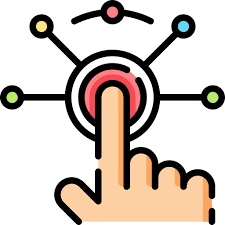The digital revolution changed the way society works. It transformed the business model and how individuals and companies interact with each other. Text messaging became a cultural phenomenon and the Internet reworked all industries.
What is the digital revolution?
The digital revolution refers to the rapid advancement and widespread adoption of digital technologies, such as computers, the internet, and mobile devices, which have transformed the way people communicate, access information, and do business. The digital revolution began in the latter half of the 20th century and has continued to evolve and expand in the 21st century.
The digital revolution has had a significant impact on many aspects of society, including the way we work, learn, and socialize. It has also led to the development of new industries and the transformation of traditional ones, as well as the creation of new job roles and the decline of others. The digital revolution has also led to significant changes in the way information is shared and accessed, with the proliferation of online content and the decline of traditional forms of media, such as print newspapers and magazines.
Overall, the digital revolution has had a profound impact on the way we live and work, and it is likely to continue to shape our world in the coming years.
Text messaging became a cultural phenomenon
It’s no secret that texting has become a cultural phenomenon in its own right. The advent of smartphones and their attendant features have changed the way we communicate. Rather than scribbling messages to the moon and back, we are now able to send and receive texts with the push of a button. Taking into account that more than half of the world’s population has a mobile device, it’s easy to see why a culture has evolved around this particular medium.
In addition, the advent of communication apps has offered users more options for better results. For instance, you can now send and receive messages from your favorite contacts from your mobile phone to your desktop computer. This paves the way for a new and more interactive era of human-to-human communication. Considering that most people in the developed world spend more than a quarter of their waking hours glued to their mobile devices, this has implications for our society at large.
As you might expect, texting has influenced the language and its etiquette in many ways. For example, while you can’t speak to the quality of a text message, you can’t speak to the quality of the person to whom you’re communicating. Thus, you have to consider the best ways to get the best out of your interactions. Moreover, it’s not a surprise that the mobile handset is now the de facto communication tool of choice in developing countries. Aside from the fact that these phones are more expensive than their landline counterparts, a lot of this spending has to do with the sheer convenience of these devices.
The Internet changed the way individuals and companies interact
The Internet is one of the most influential forces in the global economy today. It has brought a multitude of benefits to consumers and businesses. In addition, it has helped to spread knowledge and bring culture closer to more people. However, some people worry that the internet is hurting culture.
The Internet started as a way for government researchers to share information. A network was needed to make that information accessible to a wide variety of people. This led to the creation of the Internet Research Group.
Early researchers worked as a close-knit community to develop the technology. However, as the Internet evolved, the group grew.
A new communications protocol called Transfer Control Protocol/Internetwork Protocol (TCP/IP) was developed to allow computers on different networks to “talk” to each other. It supplanted most other wide-area computer network protocols by 1990.
Commercial efforts to implement Internet technology began in the early 1980s. Initially, vendors provided basic networking products and services. Their products did not have much information about their customers.
The first real effort to evolve the network took place in the form of RFC documents. These documents are critical to the evolution of the Internet.
Despite its origins as a research initiative, the Internet has become a significant contributor to the economy and to society. As a result, it has spawned new forms of art and culture. And it has been a driving force in political campaigns.
Today, the Internet comprises over 4 million systems and more than 70 million users. Increasingly, online tools are being used for information acquisition, electronic commerce, and community operations.
When it comes to the future of the Internet, the most important question is how the process of change will be managed. With its rapid growth, it is necessary to keep up with the technological advances.
It created a new age of mass surveillance
The advent of the digital revolution has opened up new possibilities for state surveillance. It has made it possible to track and store information and statistics. In turn, it has also given new potency to the state.
Surveillance practices have undergone an evolution from targeted scrutiny of “populations” to more sweeping and diverse forms of investigation. One key feature of contemporary surveillance is its use of automated, software-based systems. A further feature is the growing reliance on algorithms for analysis.
Using Big Data is a useful way to examine the impact of these changes. The recent disclosures by Edward Snowden offer a unique opportunity to examine the implications of Big Data surveillance.
As the NSA’s bulk communications data monitoring program is scrutinized in court, questions about its utility and harms are raised. This article explores this phenomenon through the lens of human rights law.
Surveillance practices operate in a complex social milieu. The issue of harms is particularly contested. For example, some people worry about the chilling effect of surveillance, including the fear of punitive sanctions from remote state agencies. Others rely on assurances from governments that their privacy is protected. However, these assurances have not been sufficient to reassure citizens.
As Big Data gains prominence, its impact on the state and private sector will be evident. It will likely amplify concerns about the politicization of surveillance. Moreover, it will likely intensify issues of privacy and critique.
Despite the potential for surveillance to be a driver of change, its impacts are not yet fully understood. By introducing surveillance language into discussions of Big Data, we can challenge naive descriptions of the technology. Ultimately, the most important question is whether surveillance techniques are necessary.
It upended the traditional business model
As we continue to embrace digital technology, businesses are experiencing a wave of transformation that has upended the traditional business model. Digitization has transformed daily life, changed consumption patterns, and upended the traditional roles of companies and consumers.
Leading organizations are re-architecting their businesses by using new digital tools. This shift in business models is transforming industries around the world. In order to compete, businesses must adopt new business models that leverage digital networks and create new forms of value.
For example, digital video streaming upends the traditional movie industry. Users are co-creators of content, which has helped fuel the popularity of social media sites and apps such as YouTube, Instagram, and Facebook. Smartphones have made it possible for users to upload photos and videos to the web immediately. These types of digital tools have revolutionized how products are promoted and sold.
A digital economy is one that emphasizes efficiency, convenience, and ease of use. Companies seek to deliver the desired product at the best possible cost, and pass savings on to the consumer. Its reliance on data is a major driver of innovation.
The World Economic Forum has argued that we are in the midst of the fourth industrial revolution, and that digitization is redefining the very fabric of our society. The Internet of Things is a key component of this revolution. Smart devices, such as cameras and televisions, can connect to each other and the internet, enabling real-time monitoring of performance.
Many businesses have embraced digitization as a way to make their operations more efficient. New technologies like artificial intelligence have impacted a wide range of industries. Other industries are also feeling pressure to adopt new digital business models.
How the digital revolution has changed society
The digital revolution has had a significant impact on society and has transformed the way we live and work in a number of ways. Some of the ways that the digital revolution has changed society include:
- Communication: The digital revolution has led to the widespread adoption of digital communication technologies, such as email, social media, and messaging apps, which have transformed the way we communicate with each other. These technologies have made it easier to stay in touch with people, regardless of where they are located, and have led to the decline of traditional forms of communication, such as snail mail and phone calls.
- Education: The digital revolution has also had a significant impact on the field of education. The proliferation of online learning platforms and the widespread use of technology in the classroom have made it easier for people to access educational resources and pursue higher education.
- Work: The digital revolution has also transformed the way we work. Many jobs that were once done in person can now be done remotely, thanks to advances in digital technologies. This has led to the rise of the gig economy and the decline of traditional employment models.
- Entertainment: The digital revolution has also had a major impact on the entertainment industry. The proliferation of streaming platforms and online content has led to the decline of traditional forms of entertainment, such as television and radio, and has made it easier for people to access a wide range of entertainment options.
- Shopping: The digital revolution has also transformed the way we shop. The proliferation of e-commerce platforms has made it easier for people to shop online, leading to the decline of brick-and-mortar stores and the rise of the digital economy.
Overall, the digital revolution has had a profound impact on society and has transformed the way we live and work in countless ways.

